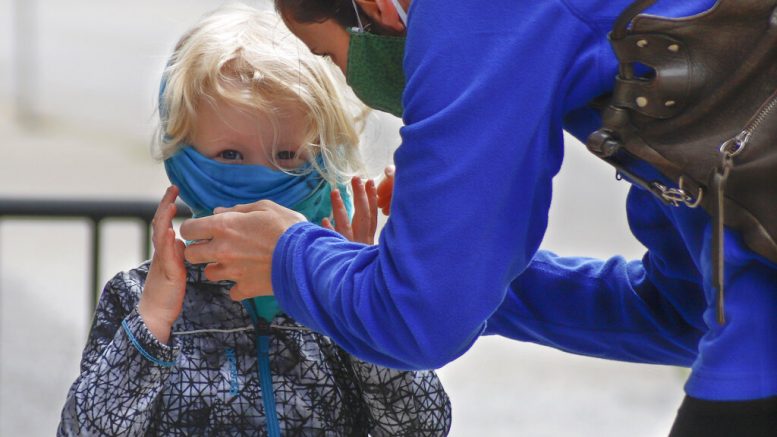HARRISBURG (AP) — Pennsylvania is working on guidelines to allow sporting events, exhibitions and leagues, both professional and amateur, to get back to “some semblance of normalcy” after practically everything shut down to help stem the spread of the coronavirus, Gov. Tom Wolf said Wednesday.
In a conference call with reporters, Wolf said he has been in touch with major professional organizations including NASCAR, the NFL, NHL, Major League Baseball and others to figure out how they can resume.
He said he expected that his administration will, in the coming days, produce guidelines for the various venues, sports and activities to resume. But, he said, the ultimate success of the events and leagues will rest on whether people feel safe to attend and participate.
“In the end, the ultimate arbiter of our fate here when it comes to sporting events are going to be individuals who want to participate, individuals who want to be part of sports, whether its amateur or professional,” Wolf said. “And we’ve got to make sure that we give them the confidence to then go to these sporting events and feel safe, that they’re not taking their lives or health into their hands.”
In other coronavirus-related developments in Pennsylvania on Wednesday:
NURSING HOME TESTING
Gov. Tom Wolf said that his administration’s new goal to test every resident and employee for the coronavirus in long-term care facilities is June 1, a week after the target date recommended by the White House to governors.
The testing is to go on every week, Wolf said, although Wolf’s own Department of Health has not necessarily endorsed any such idea or released a plan that backs that up.
A state Health Department spokesperson acknowledged the goal is ambitious, since that likely involves testing more than 135,000 residents and employees in nursing homes, assisted living facilities and personal care homes.
The Wolf administration has been under pressure to release a plan to test every resident and employee in the facilities since they have been hit hard, accounting for roughly two-thirds of Pennsylvania’s more than 4,700 reported coronavirus-related deaths.
It is also a break from last week’s guidance. That guidance encouraged facilities where the coronavirus is already present to test all residents and staff, whether or not they have symptoms of the disease, and recommending that facilities without any known infections to test 20% of residents and employees weekly.
However, Zach Shamberg, president and CEO of the Pennsylvania Health Care Association, among others, criticized that plan as inadequate and short of what other states were pursuing.
Still, Adam Marles, president and CEO of another nursing home group, LeadingAge PA, said the homes don’t have access to an adequate supply of tests or funding to pay for them.
Allegheny County’s health department director, Dr. Debra Bogen, said any sort of large-scale testing presents challenges with distributing test kits, administering the tests and processing them quickly.
NURSING HOME CASE DATA
The state Department of Health said it was working to fix day-old data showing, for the first time, the number of coronavirus cases and coronavirus-related deaths in each of hundreds of long-term care facilities in Pennsylvania.
Zach Shamberg, president and CEO of the Pennsylvania Health Care Association, a nursing home trade organization, said he had heard from at least a dozen of his members that the data was incorrect.
In some cases, the number of positive cases listed outnumbered the number of residents in the community or the facility, Shamberg said.
He asked the Department of Health to take down the data and correct it before reposting it, he said. But the department had made no commitment to doing that, he said.
The inaccuracies fueled anger and frustration among the association’s members, who were faced with the family members of residents seeing that the state’s figures didn’t match what the facilities had been providing to them.
“Once you lose confidence in those caring for your loved ones, it’s impossible to get it back,” Shamberg said. “That’s who really gets hurt with incorrect data like this.”
PRIMARY ELECTION
Pennsylvania’s top elections official, Kathy Boockvar, said that voters have submitted about 1.6 million applications for mail-in and absentee ballots for the June 2 primary election.
That number, she said, is “off the charts” and beyond most expectations. Applications are pouring in ahead of next Tuesday’s deadline to apply, as counties make plans to dramatically reduce the number of physical polling place locations because of the coronavirus.
The fear of infection has made it difficult to recruit polling workers, and state and federal health guidelines have made it difficult to find polling places that can accommodate the demands of social distancing.
In a conference call organized by U.S. Sen. Bob Casey’s office, Boockvar said she does not expect to see lines at polling places in most locations, given the number of mail-in and absentee ballots requested and considering Wolf’s stay-at-home orders that might be in place in some parts of Pennsylvania.
Some counties have already received more mail-in ballot applications than the entire vote total they expect in the primary election, Boockvar said.
More than 3.2 million people cast ballots in the 2016 primary election when the presidential nominations were still contested. This year, the nominations are uncontested.
Still, Boockvar conceded that the volume of mailed-in ballots could make it impossible to produce a result in close races on election night.
It will depend on how many ballots are actually submitted, she said. Some counties have received about 50% of the ballots for which voters applied, and those numbers vary tremendously across the state, she said.
“Some of the races that are not close we will get results quickly, but if there are close races, it may take a couple of days,” Boockvar said.
CASES
The Department of Health said the number of confirmed cases of coronavirus has passed 64,000, while the coronavirus-related death toll reached 4,767. That included 746 newly confirmed cases and another 143 new deaths.
Pennsylvania has been reporting fewer virus cases lately after exceeding 1,000 new confirmed infections on all but three days last month, peaking at nearly 2,000 on April 9. The state has recorded fewer than 1,000 new cases the past 10 days.








































